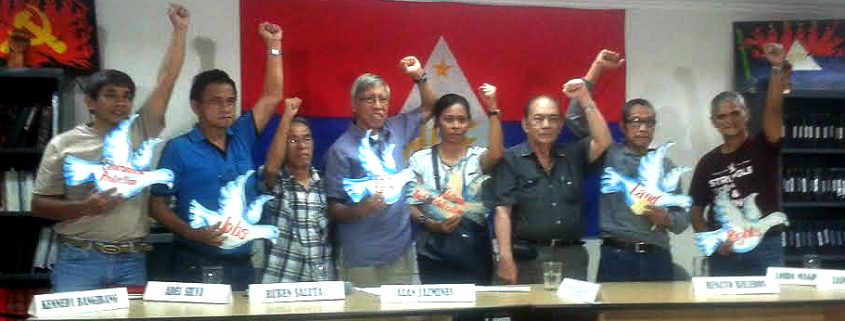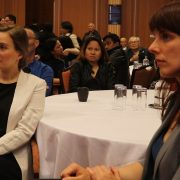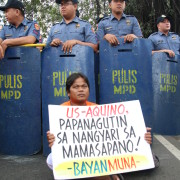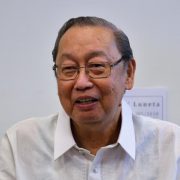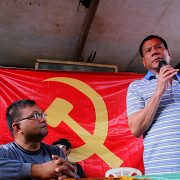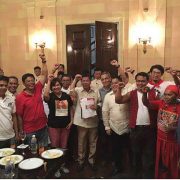NDFP to press for agrarian reform and industrialization at 2nd round of talks with GRP
CONSULTANTS of the National Democratic Front of the Philippines (NDFP) emphasized the need to address genuine land reform and nationalist industrialization at the second round of their formal peace negotiations with the Government of the Republic of the Philippines (GRP).
At a press forum in Cubao, Quezon City last Friday (September 23), the consultants said both genuine socio-economic programs are the most crucial issues to the Filipino people that they will discuss with the GRP on October 6-10 in Oslo, Norway.
The NDFP described agrarian reform as a key component to democratization as it provides the foundation for the economic, political, social and cultural liberation of farmers in the Philippines, most of whom are landless and oppressed by landlords.
Agrarian reform
The NDFP’s draft on the Comprehensive Agreement on Socio-Economic Reforms says that it intends to distribute land for free to poorer farmers, provide justice to victims of human rights violations by landlords, and achieve food self-sufficiency and security.
The consultants added that the CPP-NPA-NDF is already implementing reforms in agricultural areas they consider their territory through agrarian revolution that allow land ownership by poor farmers.
They said their methods include collective farming and takeover of agricultural lands from non-agricultural companies.
NDFP consultant Renato Baleros said there are examples of successful implementation of such methods in areas governed by the CPP-NPA-NDF.
He added that the past GRP administrations were largely unaware that agrarian revolution is being implemented in lands that were abandoned, government-owned or landlord-owned.
He added that the turn over of land to farmers empowers them and increases their productivity, as opposed to the oppression they receive from landlords.
National industrialization
Prof. Edberto Villegas, on the other hand, explained that the Philippines is fully capable of taking control of basic industries for national industrialization.
At present, the Philippines has no national industry, and its economy relies heavily on exporting products and labor, Villegas said.
Villegas said that the nationalization of industries such as steel and mining would provide economic development and additional jobs.
“We have to negotiate our foreign debt, erase corruption so as to prevent money from disappearing via pork barrel, and support research and development for Filipino technicians and inventors to achieve national industrialization,” Villegas replied to questions on where the Philippines would source funding for industrialization.
“The Philippines is rich, both in natural and human resources. If we do not act quickly, we will lose them,” Villegas said.
Independent foreign policy
The consultants also said they view President Rodrigo Duterte’s recent statements against foreign intervention as positive.
Consultant Alan Jazmines said they can support Duterte’s strong statements for sovereignty.
“We have yet to see how anti-imperialist he is but at least he has an initial stand that he will not be bullied. So we appreciate that and I hope it will help us,” Jazmines said.
Duterte’s pronouncements bode well for CASER, especially if he crafts an independent foreign policy which is a requisite for building a self-reliant economy, NDFP said. # (Report and featured image by Abril Layad B. Ayroso)

